'Cooperation, competition': how Obama adviser sees it
Updated: 2016-01-14 12:15
By Hua Shengdun in Washington(China Daily USA)
|
||||||||
Rhodes looks forward to more cooperation on climate change, security issues, trade
"Elements of cooperation and competition" is how a White House official described the dynamic between the US and China a day after US President Barack Obama's last State of the Union address.
Ben Rhodes, the president's deputy national security advisor for strategic communication, briefed foreign journalists on Wednesday at the Foreign Press Center.
Rhodes said the administration looks forward to more profound cooperation with China on climate change, security issues and international trade while admitting there are still disagreements on issues such as cybersecurity. "We could not achieve the Paris Agreement (at the UN climate conference in December) without the cooperation we have with China," Rhodes said.
"We need to work closely with China on cybersecurity," Rhodes said.
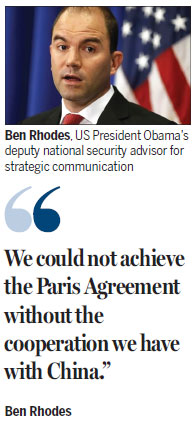
Joint efforts in tackling climate change started with an informal talk between President Xi Jinping and the US president at Sunnylands in California in June 2013. Ambitious goals were announced shortly after the meeting.
The United States finalized its Clean Power Plan, pledging a reduction in CO2 emissions from the power sector to 32 percent below 2005 levels by 2030. China also made a commitment to ensure that carbon emissions peak before 2030.
The climate announcements by China and the US showed consensus on sensitive issues and contributed greatly to the Paris deal, Xie Zhenhua, China's special representative on climate change, said in December.
The leaders of both countries have laid a good foundation for cooperation on climate change issues, said Xie, adding that they exchanged views quite frequently during the Paris conference.
"Even during the final stalemate stage, China and the US strengthened communications and followed the requirements of the top leaders of both countries," Xie said.
Besides calling on China to conduct counterterrorism campaigns with the US, Rhodes identified the recent nuclear test by the Democratic People's Republic of Korea (DPRK) as the top security issue for both countries.
The fourth underground nuclear test, announced on Jan 6, was described by North Korean media as a miniaturized hydrogen bomb test. There has been no independent confirmation of this, but it is the first claim of a hydrogen bomb, known to be immensely powerful, according to BBC.
Although China is not in the Trans-Pacific Partnership (TPP) trade agreement, Rhodes said there could be more interactive dialogue in the China-US Bilateral Investment Treaty (BIT).
Pan Jialiang in Washington and Lan Lan in Beijing contributed to this story.
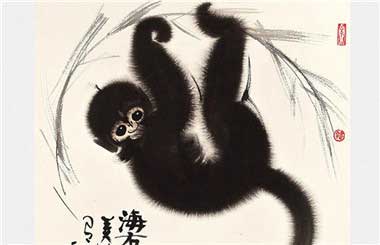
 Monkey portraits by Chinese ink painting masters
Monkey portraits by Chinese ink painting masters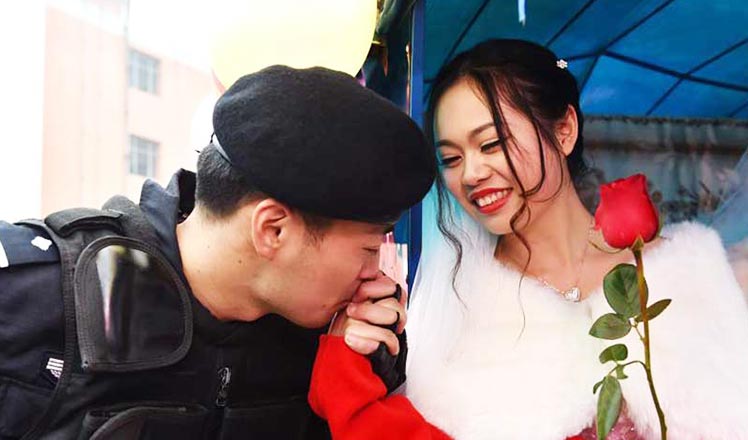
 SWAT members hold romantic wedding in E China
SWAT members hold romantic wedding in E China
 Stephane Peterhansel regains Dakar Rally lead
Stephane Peterhansel regains Dakar Rally lead
 Goodbye to steam trains
Goodbye to steam trains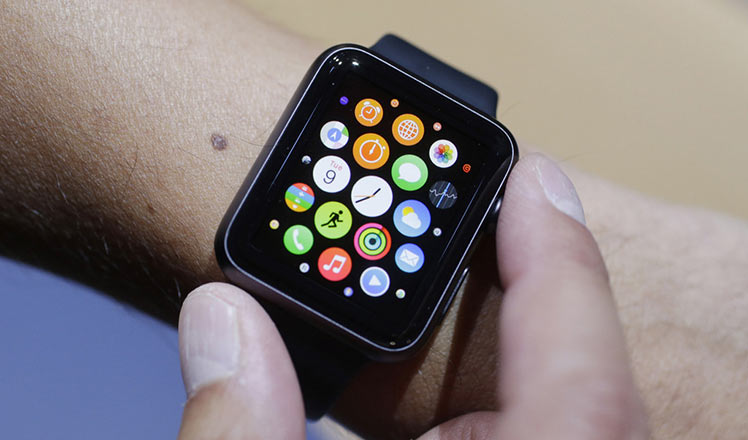
 Top 11 events in the wearable sector in 2015
Top 11 events in the wearable sector in 2015
 Execs introduce new models at Detroit Auto Show
Execs introduce new models at Detroit Auto Show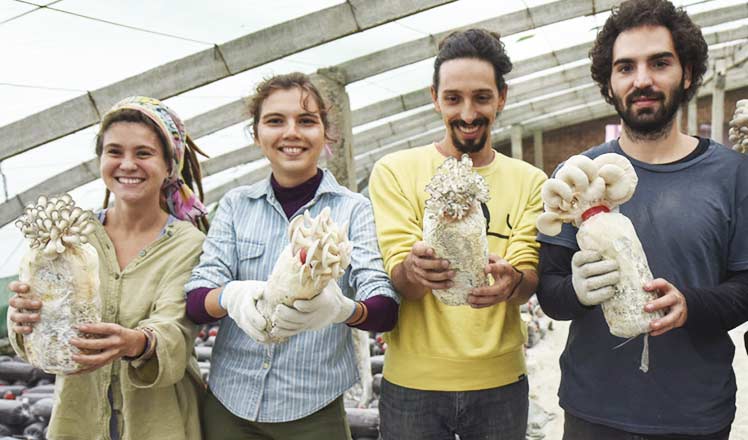
 Foreigners learn mushroom cultivation skills in Xi'an
Foreigners learn mushroom cultivation skills in Xi'an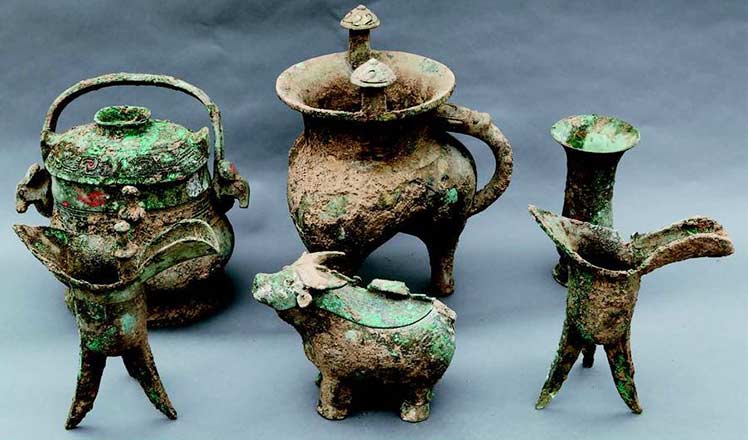
 Academy releases top 6 archaeological finds of 2015
Academy releases top 6 archaeological finds of 2015
Most Viewed
Editor's Picks

|

|

|

|

|

|
Today's Top News
National Art Museum showing 400 puppets in new exhibition
Finest Chinese porcelains expected to fetch over $28 million
Monkey portraits by Chinese ink painting masters
Beijing's movie fans in for new experience
Obama to deliver final State of the Union speech
Shooting rampage at US social services agency leaves 14 dead
Chinese bargain hunters are changing the retail game
Chinese president arrives in Turkey for G20 summit
US Weekly

|

|







